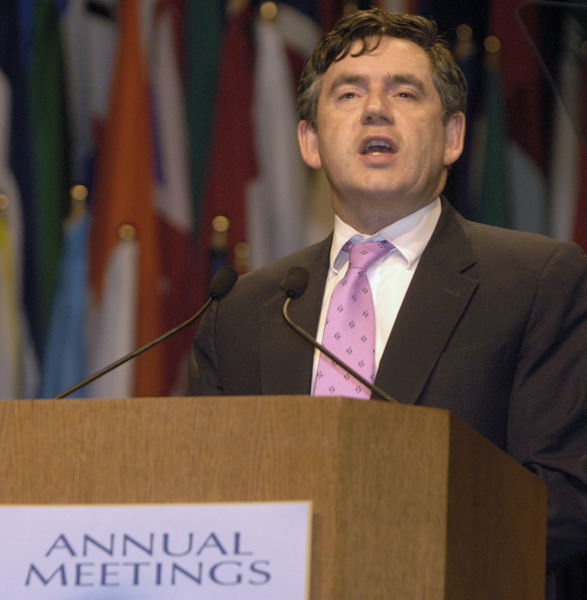Rejection
Gordon Brown rejects union demands for public sector pay increases
 Gordon Brown attempted to stamp his authority on the Labour movement yesterday as he told trade union leaders that he would not give in to their demands for higher public sector pay or an end to staged pay settlements.
Gordon Brown attempted to stamp his authority on the Labour movement yesterday as he told trade union leaders that he would not give in to their demands for higher public sector pay or an end to staged pay settlements.
He used his first speech to the Trades Union Congress as Prime Minister to deliver an uncompromising message on public sector pay, saying that his 2 per cent pay ceiling was central to the Government’s economic policy.
Mr Brown, who was heard for the most part in polite silence, rejected claims by left-wing union leaders that public sector workers are the victims, not the cause, of inflation, saying that the alternative was unemployment, higher mortgage costs and spending cuts. Stability, his codeword for an unrelenting focus on battling inflation, would come first “yesterday, today and tomorrow”, he told them, and was the path to more jobs and greater prosperity.
“No loss of discipline, no resort to the easy options, no unaffordable promises, no taking risks with inflation,” Mr Brown told the TUC in Brighton. “So let me be straightforward with you: pay discipline is essential to prevent inflation, to maintain growth and create more jobs, and so we will never return to the Conservative policies of boom and bust ever again.”
Although presented as a rejection of the Tory economic management of the early 1990s, his message was a firm refusal to reopen negotiations on this year’s round of pay settlements.
Within hours of his speech the PCS, representing white-collar workers, confirmed that it would go ahead and ballot 280,000 civil servants on industrial action this month unless their pay offer was improved, and they received assurances on job security and the role of private companies.
Mark Serwotka, the general sectretary of the PCS, announced that 82,000 members in the Department for Work and Pensions had rejected their below-inflation pay offer by a margin of three to one and predicted that his members would overwhelmingly back strikes.
Unison will announce on Thursday the results of a ballot on an improved pay offer for its health workers and is preparing to ballot members working in local government on industrial action after they rejected a revised pay offer.
Mr Brown trod a careful path in his speech between conciliatory language, with announcements on helping to match British workers with job vacancies, and distancing himself from the unions’ core demands on pay.
There is also a growing determination among union leaders, led by Unite and the GMB, to resist changes planned by Mr Brown to the running of the Labour Party conference that would dilute the unions’ ability to control the agenda by forcing votes for emergency debates on so-called “contemporary resolutions”. Mr Brown is proposing a new system of votes on contemporary issues that would then be debated in the party’s national policy forum, moving rows on policy away from the conference floor.
Union leaders reacted with anger to his message on public sector pay and were divided about the significance of announcements on strengthening enforcement of the minimum wage; increasing penalties for its violation; and his agenda of British jobs for British workers.
Tony Woodley, the joint general secretary of Unite, said: “It was a very lukewarm reception . . . it was more of a lecture than a speech.” He criticised the Prime Minister for talking tough on public sector pay but saying nothing about City bonuses.
Dave Prentis, the general secretary of Unison, welcomed other parts of Mr Brown’s speech, in which he emphasised his background as a part-time trade union tutor, but accused him of being out of touch on public sector pay. “Perhaps he hasn’t yet gauged the real feeling of public service workers having to bear the brunt of government cost-cutting,” Mr Prentis said.
Chris Grayling, the Conservatives’ Work and Pensions spokesman, dismissed Mr Brown’s plans to have a British job on offer for every Bitish worker. He said: “The speech is a sham. These are either reannouncements or things he cannot do legally anyway. Under European law you are not allowed to fast-track British workers into British jobs.”
(Published by Times Online, September 11, 2007)
______________________